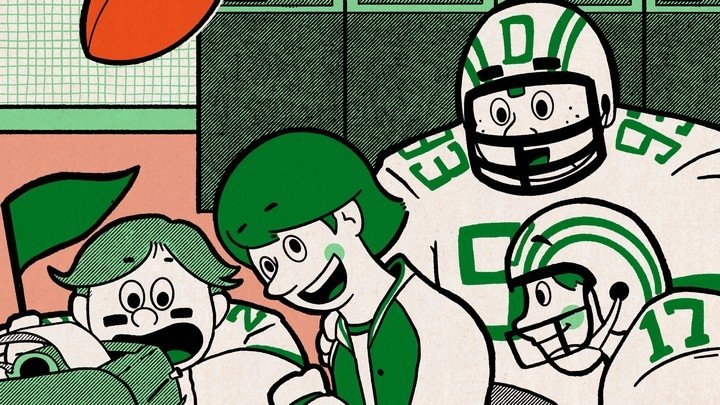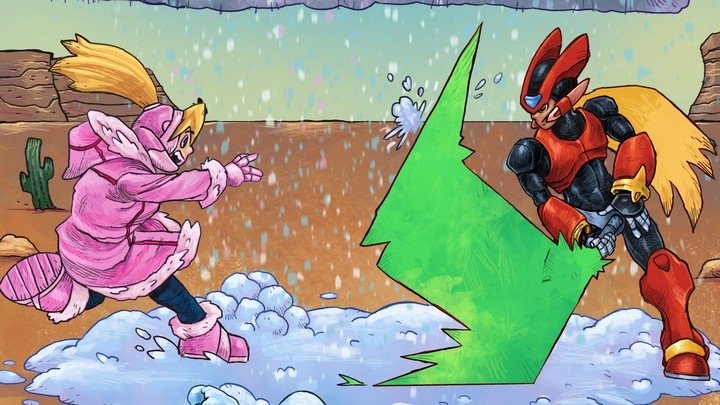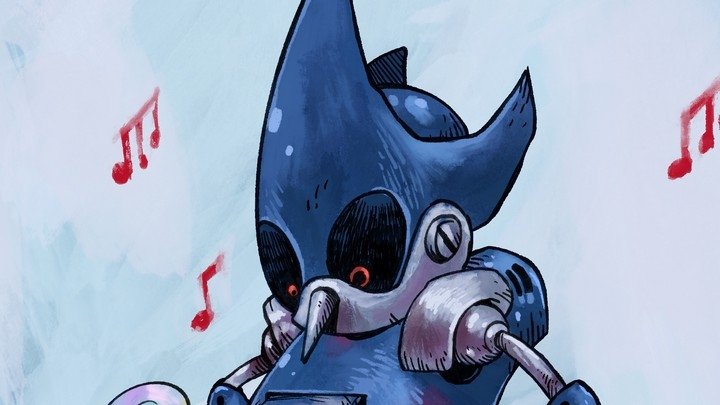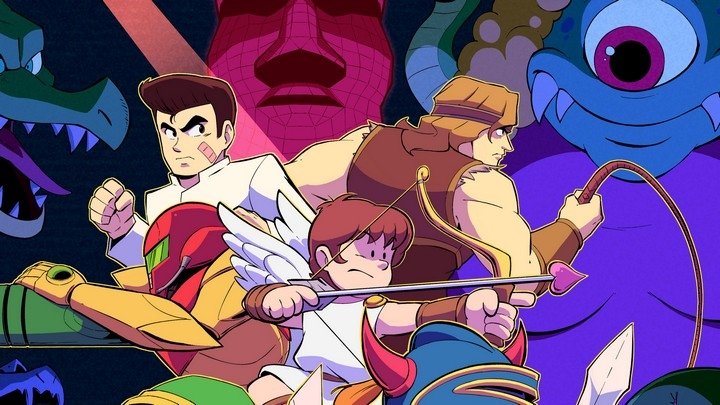Retro Re-release Roundup, week of August 21, 2025
Skip's foot-high frendroid makes a comeback via Nintendo Switch Online.
One might choose to interpret Chibi-Robo's early appearance on Switch 2 as an indicator from Nintendo that they intend to actively pursue Gamecube reissues beyond the obvious zillion-selling first-party picks. One might also be a desperate Odama fan looking for any glimmer of hope, but let's not delve too deeply into that hypothetical.
ARCADE ARCHIVES / ARCADE ARCHIVES 2
Chopper 1
- Platform: Nintendo Switch 2, PlayStation 5, Xbox Series S/X (worldwide, ACA2) / Nintendo Switch, PlayStation 4 (worldwide, ACA)
- Price: $9.99 / €8.99 / £7.39 (ACA2), $7.99 / €6.99 / £6.29 (ACA), $2.99 / €2.99 / £2.49 (ACA-to-ACA2 upgrade)
- Publisher: Hamster / SNK
What's this? A vertically-scrolling military-themed shooting game, originally developed and distributed in arcades by SNK in 1988 and reissued on home playforms via the PSP Minis service and the semi-recent SNK 40th Aniiversary Collection; one or two players pilot their attack helicopters on a mission to defeat the enemy force, a feat made capable by both upgrading and augmenting the standard shot but also by collecting and deploying a variety of powerful, bomb-esque limited-use special weapons.
Why should I care? For as staid as it may be, Chopper 1 was at least a looker for its time, and i suppose the inclusion of terrain elements was somewhat unusual when compared to its military-themed vertically-scrolling shooting game contemporaries. (Do note that the enemies have no issue waltzing right through obstacles that'll kill the player.)
Helpfup tip: Just to reiterate the difference between ACA and ACA2: ACA2 offers exclusive time attack modes with separate online leaderboards, variable refresh rate support, online multiplayer where applicable, rewind, multiple savestate slots, more detailed controller options and several other general and per-title extras that aren't present in the regular ACA releases; these additions will be more or less meaningful depending on the game and/or how much that game might require the juice of more current hardware, and in this case, I'd say you won't be missing much if you choose to, or have no choice but to stick with the standard version.
EGG CONSOLE
Diable de Laplace (Laplace no Ma) (PC-9801)
- Platform: Nintendo Switch (worldwide)
- Price: $6.49 / ¥880
- Publisher: D4 Enterprise / Hummingbird Soft
What's this? A Lovecraftian first-person RPG adventure, developed by Hummingbird Soft for PC-99 in collaboration with cross-media RPG production company Group SNE in 1987 and quickly ported to PC98, with subsequent ports to MSX2 and Sharp X68000 and remixed adaptations for PC Engine CD and Super Famicom, as well as game books, novels and other media. Set inin 1920's America, players must assemble a party of custom and/or event characters in order to investigate the peculiar goings-on inside a mysterious mansion; in addition to mapping each complex, puzzle-laden dungeon, the player must contend with the game's many unique RPG subsystems, which include managing characters' mental stamina in order to keep them from slipping into psychosis and accruing money by selling photos taken of the monsters inside the mansion.
Why should I care? A lot of off-kilter RPGs from this era buckle under the weight of their own subsystems, or ill-advised attempts to subvert genre template that simply add unwarranted tedium to something that might otherwise be straightforward, but Laplace no Ma deftly synthesises its less conventional ideas with the conventions of the Cthulu mythos to provide an experience that's truly horrific, and not just Wizardry with a veneer. (It's also a good deal more complex than the significantly altered SFC version, which is the version I imagine people might have seen before, if at all.)
Language barrier? Save for the very occasional noun, the entire game is in Japanese, and I daresay even those who can read it might struggle to make progress, so don't even bother trying to bluff your way through it.
G-MODE ARCHIVES+
- Platform: Nintendo Switch (Japan)
- Price: ¥800
- Publisher: G-MODE / City Connection
What's this? A feature phone conversion of Jaleco's 1983 inertia-laden fixed-screen arcade shooting game Exerion, originally released in Japan via the Jaleco Garesso! service in 2002; this version offers an ever-so-slightly-prettier take on the original (specifically, the Famicom port) and offers online leaderboards, which have been maintain for this reissue.
Why should I care? Your support for feature phone reissue initiatives allows you to overlook the fact that this particular conversion's struggling to replicate the performance of a very early Famicom game.
Useless fact: City Connection has already faciliitated the Arcade Archives reissue of the original Exerion as well as the all-original modern sequel Final Exerion, and is queuing up a reissue of the MSX version which will probably be followed by the MSX-exclusive sequel/revision, but they've somehow managed to avoid reissuing the Famicom version, which is by far the most-played and most-remembered version (especially globally, owing to its ubiquity among pirate multicarts), on Switch.
NINTENDO SWITCH 2 ONLINE EXPANSION PASS
August '25 update: Chibi-Robo! (GameCube)
What's this? A 3D real-time adventure game starring a tiny helper robot, originally developed by Skip Ltd. and published by Nintendo for the GameCube in 2006, with a Japan-only Wii port released in 2009 and several additional games across various genres and formats until the series' assumed death in 2015; set inside a family home not unlike that of 1960's America, players guide Chibi-Robo on his mission to enrich the lives of the residents of the Sanderson household, which not only include the human family but an array of living toys, each with their own wants and desires from the heartfelt to the mundane.
Why should I care? You want to experience an evolution of the N64 Rareware "platformer" format that understands that the chore is the law, with only the faintest vestige of "gameplay" still remaining, and — most crucially — a lot of surprisingly involved character writing from the co-creator of moon RPG Remix Adventure, and not some overworked British dork writing solely for his co-workers. You might also be someone who tried any of the other Chibi-Robo games and didn't understand why anybody would be so fanatical about this series, or why Nintendo seemed so keen to give it so many chances: it's all off the strength of this game and this game alone, and even Nintendo themselves were guilty of losing sight of its true charms in favor of thinking the robot was sufficiently visually appealing to carry any kind of game for any kind of audience.
Helpful tip: Of all the subsequent Chibi-Robo! games, the Japan-only Okaeri! Chibi-Robo! Happy Richie OusOuji! for Nintendo DS is the only one was the only one developed in the explicit vein of the GameCube game, and thus is the one I'd recommend people play after the original; I wouldn't go so far as to say you can skip the others, but you certainly needn't rush to play 'em, either.
PLAYSTATION PREMIUM CLASSICS
August '25 update: Resident Evil 2 & Resident Evil 3 (PlayStation)

What're these? The original PlayStation versions of Capcom's wildly popular Resident Evil sequel and its modestly-liked follow-up, originally released in 1998 and 1999, respectively, and recently reimagined in 2019 and 2020; with the addition of these games to the modern PlayStation library, it now covers all the mainline games, all the remakes and all the major single-player spinoffs, as well as some multiplayer spinoffs that the world has summarily forgotten.
Why should I care? Look, I'm more of a Countdown Vampires dude. Sorry!
Helpful tip: Sony and/or their collaborative licensors like to flip-flop on whether people can buy Classics as standalone purchases sans subscription, or whether old PS3-era purchases are redeemable on modern systems, but these games should be purchasable and/or redeemable right away; of course, I say "should" because this process never seems to work as advertised, but let's try to remain optimistic, eh?
OTHER
Revolution Editions - Shadow and Steel
- Platform: PC via Steam (worldwide)
- Price: $17.99 or equivalent each
- Publisher: Revolution Software / Antstream
What's this? A four-pack of seminal point-and-click adventure games from the early years of British studio Revolution Software: their debut title, 1992's Lure of the Temptress (specifically, the Amiga version), its 1994 successor, Beneath a Steel Sky (again, the Amiga version) and the first two entries in the ever-popular Broken Sword seires (in this case, the PlayStation versions). These reissues are being emulated by Antstream and feature save states, various screen filters, optional widescreen modes and art and music galleries, among other features. (Do note that these are native client-side emulation packages, not streamed emulation a la Antstream Arcade.)
Why should I care? Most of these games have been made, remade and reissued in a plethora of other formats before now, including many that were considered preferable to the specific versions being offered in this package, but there's no harm in offering people choices, is there? I should also point out that my prior comment does not apply to Lure of the Temptress, which has essentially been ignored by the commercial reissue space for the last thirty years or so, so if you really want to pay for it, here's your chance.
Helpful tip: The superior DOS version of Beneath a Steel Sky remains free to download from Steam — or at least, it's still there as of this writing.
Shantae Advance: Risky Revolution
- Platform: PlayStation 5, PlayStation 4, Nintendo Switch, Xbox, PC via Steam (worldwide)
- Price: $24.99 or equivalent each
- Publisher: WayForward
What's this? The first contemporary platform release of the unfinished and unreleased Game Boy Advance sequel to the cult side-scrolling action-adventure game Shantae, which was originally shelved in the early '00s by developer WayForward due to their inability to secure a publisher but recently retouched, completed and sold via GBA-compatible cartridge; these versions look to be Unity-recompiled versions of the game rather than direct emulations, and offer high-resolution character portraits, UI and text atop the original GBA-compliant pixel art.
Why should I care? Shantae Advance was, to many, one of the great missed opportunities of the GBA era, and one whose legend only grew as its developers continued to reference it in relation to the development of other, newer games, so being able to experience some version of the game after all these years is something a lot of people are bound to appreciate. with the caveat that they accept that many of the ideas and even direct assets were repurposed, reinterpreted or straight-up reused to better effect in games that you may have already play five, ten or fifteen years ago.
Helpful tip: WayForward's also offering a deluxe edition with additional attack-enhancing costumes which, to my knowledge, are not present anywhere in the GBA version, and whose very existence seems utterly contra-retro.




